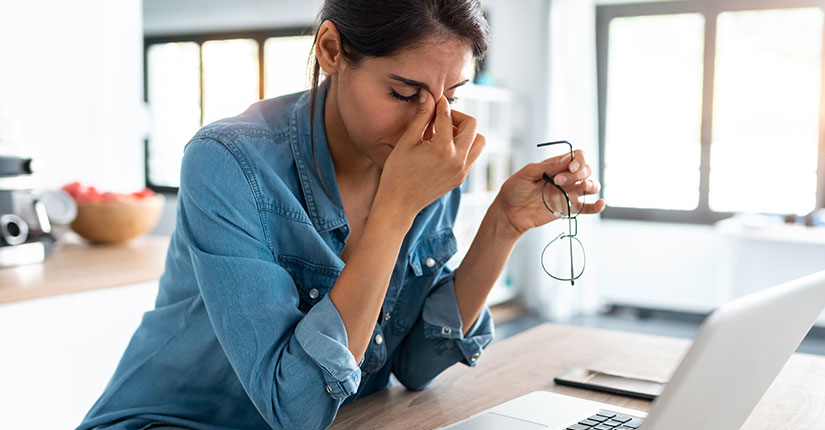Menopause & Mental Health- Coping Strategies
By Nmami Life Editorial 05-Apr 2020 Reading Time: 5 Mins

Reaching the middle age can be quite irritating and can bring mental health issues. Physical changes in between the 40s and 50s like declining conditioning of estrogen and progesterone, signs and indications of menopause can cause disruptions and lead to a disturbing mind while giving you stress, anxiety, and fear.
What is menopause?
Menopause happens to women age between 40 and 58 years and it is described as the stage in which menstrual cycles end. Perimenopause, menopause, and postmenopause are the three stages of menopause. Menopause is a physiological process but it brings various physical symptoms such as heated body, night sweats, vaginal dryness, sleep disturbances, discomfort and emotional changes that can further create anxiety, concern and other mental health problems.
Menopause affects mental health
Women may feel emotional changes and can experience worries, doubts, and concerns about getting older and high risk of getting health problems. In some cases, menopause makes women isolated and frustrated. They develop thoughts like family and friends won’t understand what they are going through and these thoughts will lead to anxiety, depression and altered mental health if left untreated.
Symptoms of depression during the time of menopause
- Irritating and frustrating outbursts
- Restlessness
- Feelings of guilty
- Loss of interest
- Low energy levels
- Changes in eating patterns
Lifestyle changes that can prevent and help in better mental health
Proper treatment of mental and emotional needs during menopause is very important. There are various changes you can incorporate in your lifestyle to make yourself happy and healthy while lowering down the risk of any cognitive health issues.
Here are some lifestyle changes that can save you from unnecessary worries, concerns, and depression.
- Get adequate sleep: A lot of women often feel sleep disturbances during menopause and this might lead to fears, worries, and anxiety. A night of good sleep can calm down the mind and make you feel fresh and happy. Make sure to get 8 hours of sleep every night to lower down the risk of any mental health issues. If you won’t be able to sleep properly then change your sleeping environment by keeping your bedroom dark, cool and quiet.
- Add exercise: Regular exercising helps you in relieving stress and it gives a quick boost to your energy levels while uplifting your mood. Try to add 30-45 minutes of regular exercise in your lifestyle and you will definitely notice great results. You can add brisk walking, running, jogging, aerobics and yoga.
- Try relaxation techniques: Adding meditation, Yoga, soothing massages in your lifestyle can make you relaxed and reduce stress in no time. They boost your sleep as well.
- Talk to people: Talking to your friends and family is a great way to relax your mind. This way they can support you and help you in coping out from any depression and anxiety. You can also talk to women who are going through the same change as it is easier to share your thoughts and feelings with her.
Footnote
Stress, fear, and anxiety during the time of menopause are completely normal and happened to a lot of women. Don’t panic and add these pointers in your lifestyle to further prevent any mental health ailment like depression and anxiety.


















